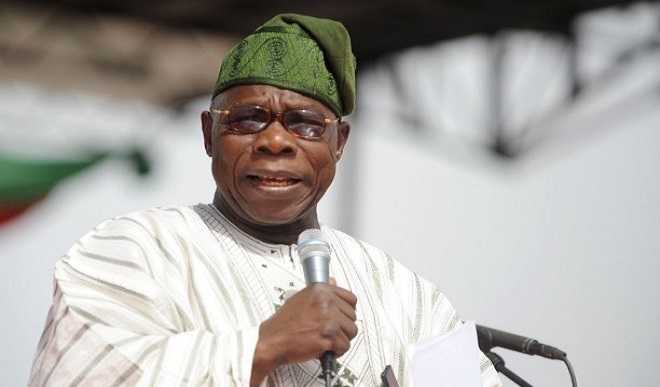The all out war of the present administration against corruption is expected to reduce the malaise but hell no according to former President Olusegun Obasanjo. He also blamed the church for veneration of those whose sources of wealth are questionable
The forner President expressed this view yesterday in Abeokuta while delivering a lecture on the theme: “The Role of the Church in the Fight Against Corruption in Nigeria”, at the 2017 Convention of Victory Life Bible Church International (VLBC).
Obasanjo said corruption today is far bigger than that of 1999. “Despite all these efforts, corruption is still thriving in our country. In fact, from the revelations we are hearing, it seems the situation is worse than what I met on ground in 1999. The inference is that fighting corruption is not a one-off or one regime affair; it is an all-time and all-regime affair. If we relent, it bounces back with vengeance,” Obasanjo said.
“During my tenure as a democratically elected President of Nigeria in 1999, a bill was presented to the National Assembly on prohibition and punishment for bribery and corruption and other related offences. I took that bold step then.
“How far has this actually helped in the eradication or better still, in reduction of corruption in the country? Unfortunately, the act has continued to spread like a wildfire, from federal to the states, to the local government level and to other authorities, even within the educational sector in Nigeria – from secondary to university levels.
“A student bribing lecturer for higher grades is corruption. Lower clerics have been found to be bribing their way through to be promoted even in the ‘house’ of God. Evidence also abounds in which female staff enjoys unqualified rapid promotion in many offices and organisations, particularly among the ministries, departments and agencies (MDAs).”
“Since the creation of modern public administration in the country, there have been cases of official misuse of funds and resources.
“The rise of public administration and the discovery of oil and natural gas are two major events seen to have led to the increase in corrupt practices in the country. The government has tried to contain corruption through the enactment of laws and the enforcement of integrity systems, but success has been slow in coming.”
“Legislation alone is not enough as they are often breached by those who make them and those who should implement them.”
He said: “political corruption is a persistent phenomenon in Nigeria and there is politics everywhere, including the Church, especially if politics is seen as concerned with power, status, influence within an organisation rather than with matters of principle.
“Corruption has been in existence in all strata for ages and it cannot go away easily but it can be curbed. We all have our fair share in encouraging corruption but unfortunately, it is becoming more rampant, in the political circle and in governments in various countries, particularly among developing nations including Nigeria.”
Obasanjo also slammed the church for the ignoble role it played in condoning and encouraging corruption, he said “The church needs to clear its Augean stables. The temple of God must be the cleanest to restore the holiness of the church. Our present-day money changers and merchants must be chased out of the church. The pulpit must be used to teach and preach righteous and honest living. To preach that one can acquire wealth without labour is not only deceitful, but also a call to corruption.
“We must be careful in believing and celebrating every testimony of miraculous blessing, otherwise we end up celebrating corruption. The behaviour of some of our men of God leaves much to be desired. They not only celebrate but venerate those whose sources of wealth are questionable. They accept gifts (offerings) from just anybody without asking questions, giving the impression that anything is acceptable in the house of God.”
The former President also accused developed countries of complicity in corruption. Transparency International as a global civil society organisation leading the fight against corruption has though rated developing countries as more corrupt, it cannot absolve the developed countries of complicity.
“They are encouraged largely by some of these developed countries because these regions serve as opportunistic avenues for hiding or domiciling their ill-gotten riches, sometimes for greater returns when compared with being in the home or developing countries,” he said.
Therefore, to effectively curb corruption, he posited that “children, youth and adults must be given the power to distinguish between the rights and the wrongs. Schools should return to the teaching of moral education to empower children with the spirit of stewardship and scholarship, while adults live exemplary lives, reflecting truth, kindness, healthy competition, dignity in labour and integrity. It must be all hands on deck within the society.”




